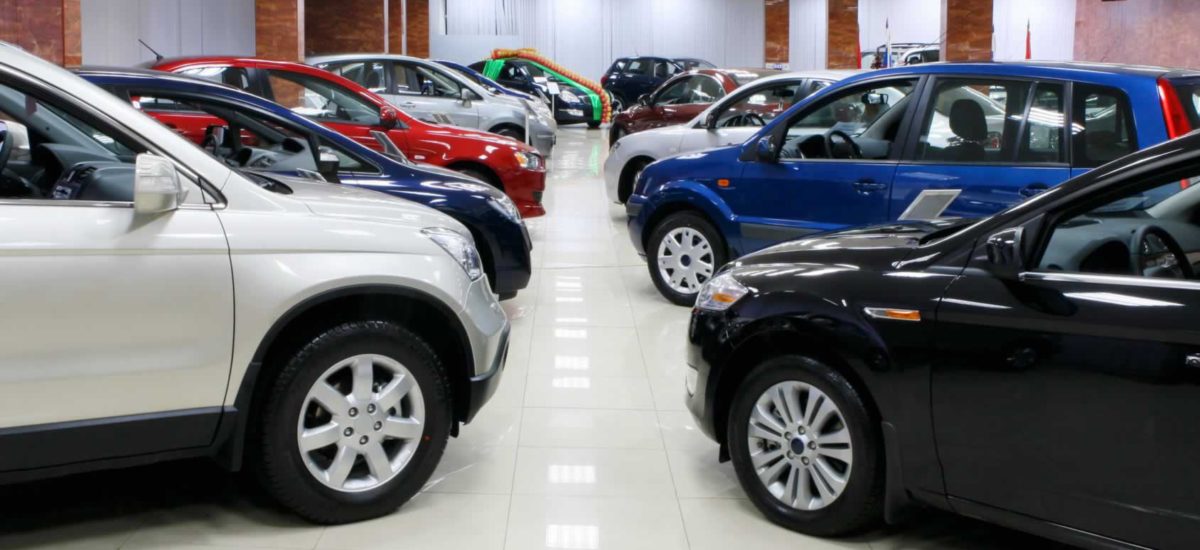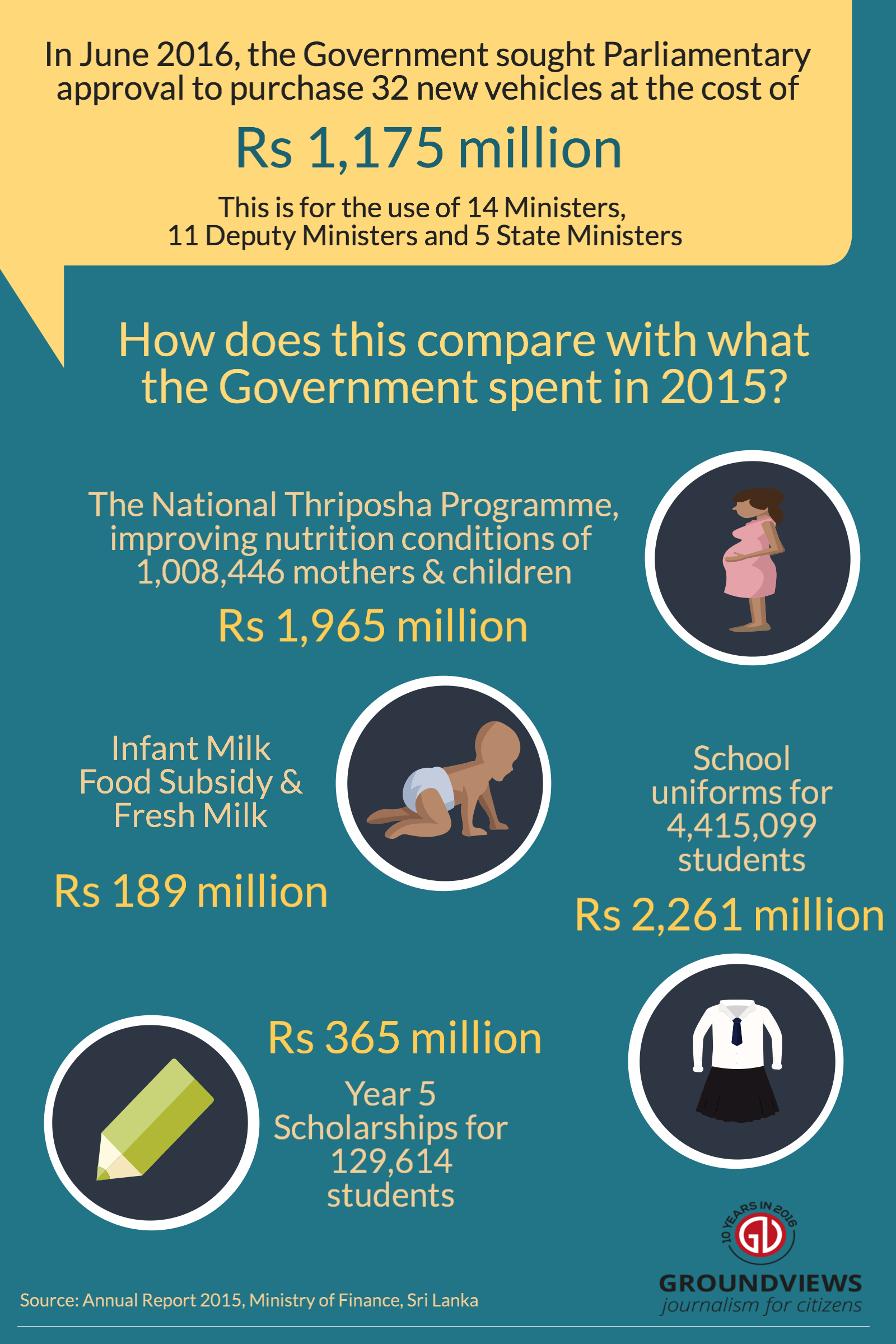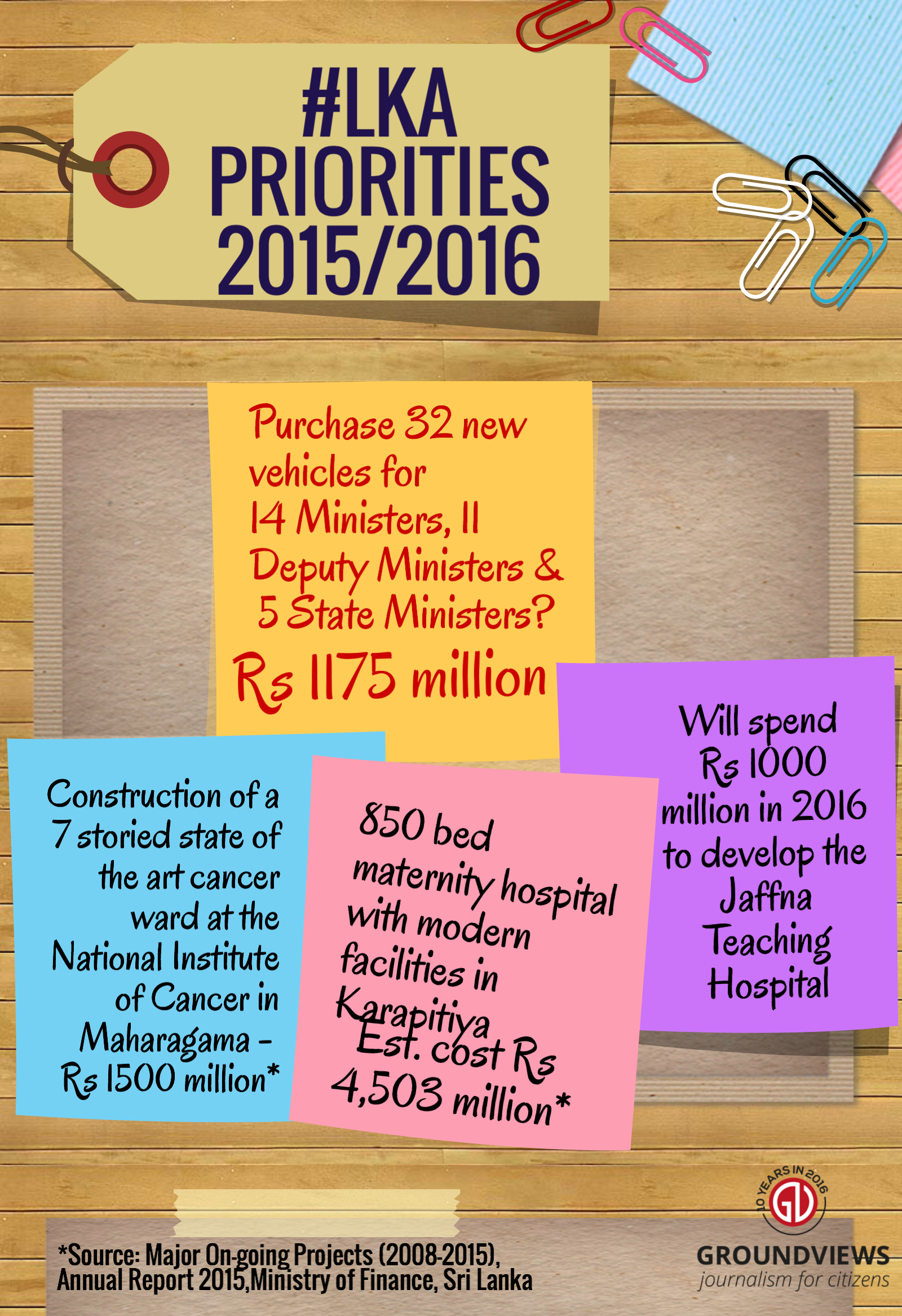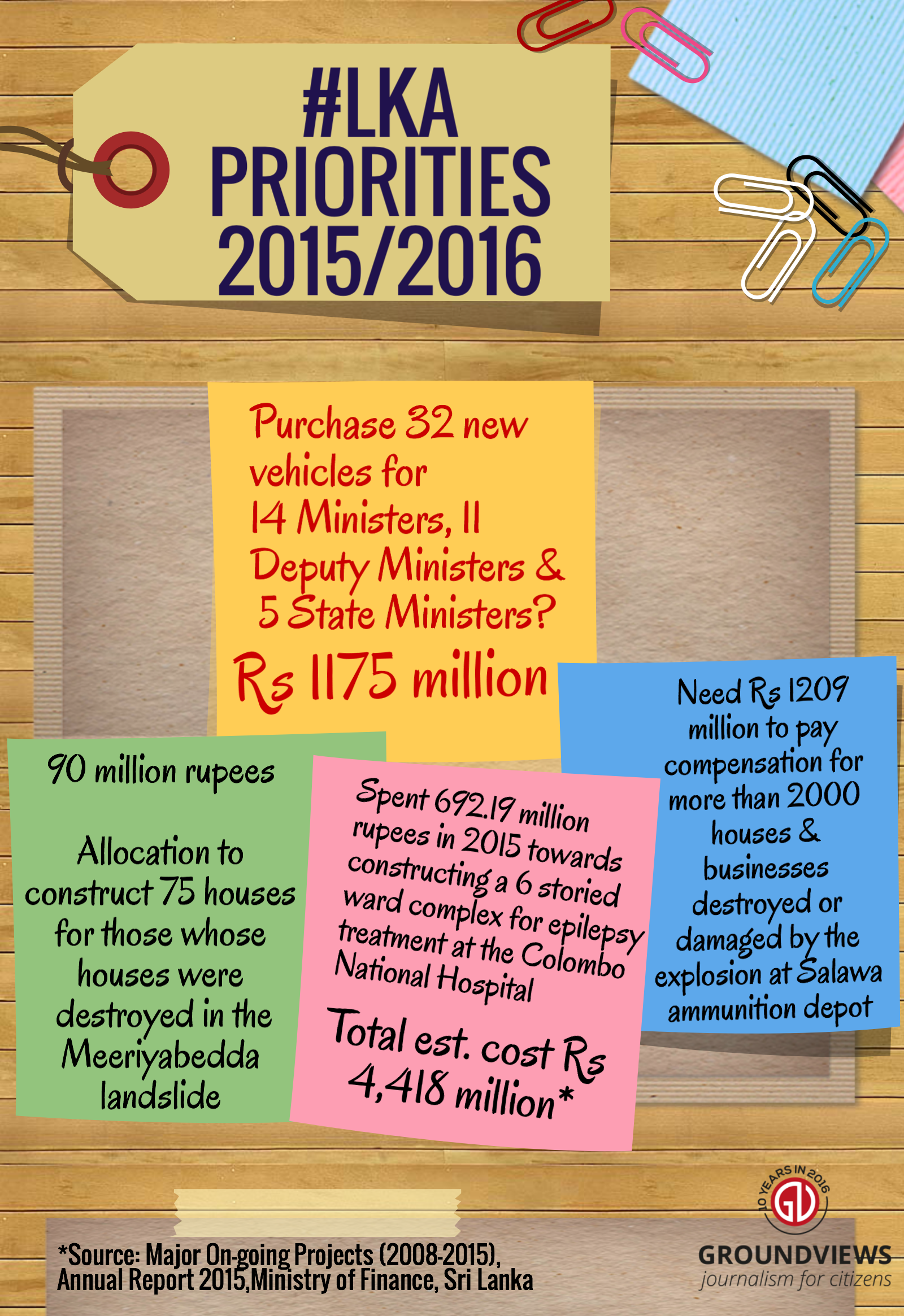Featured image courtesy Asian Mirror
On June 7, a supplementary estimate was submitted to Parliament for the import of luxury vehicles for Ministers and their deputies.
Rs. 1.17 billion was sought, with several, including Joint Cabinet Spokesmen Ministers Dr. Rajitha Senaratne and Deputy Minister Karunaratne Paranawithana defending the estimate.
This is very saddening. How can Govt justify this Rajapaksa-esque spending? https://t.co/h2ibQIxeNj #lka #srilanka pic.twitter.com/z8gks0x4eV
— Groundviews (@groundviews) June 9, 2016
Minister Senaratne said Ministers and Deputy Ministers needed super luxury vehicles to travel to their electorate, various functions and ceremonies round the country.
The announcement however led to public outcry on social media.
Car promises, then and now…
What a difference 18 months make!#??????????? #???????????? #??????? #lka pic.twitter.com/vwSrMHkVsb— Nalaka Gunawardene (@NalakaG) June 9, 2016
A month ago, Sri Lanka was grappling with floods across the island, which had displaced hundreds of families, leaving them destitute. Landslides in Aranayake also left several dead/ Just two days before the presentation of the supplementary estimate, there was an explosion at an ammunitions depot at the Salawa Army camp, leaving an estimated 800 houses damaged, and most of the residents in the area without electricity.
In this atmosphere, the news of Ministers preparing to import luxury vehicles was not well received.
As pushback increased, several MPs including Harsha de Silva, Ranjan Ramanayake and Palitha Thewarapperuma were quick to say they hadn’t asked for or wanted a new vehicle.
Here @RamanayakeR s letter of rejection new vehicles #SriLanka pic.twitter.com/P723uYjBzf
— Vajira Sumedha? ?? (@vajirasumeda) June 9, 2016
Here Palitha thewarapperuma requesting his granted luxury vehicle cost to spent another fund. HatsOff #SriLanka pic.twitter.com/aaG7LPcSGP
— Jazaul Mufaris (@MufarisMohamed1) June 9, 2016
While these moves were applauded, they were also met with skepticism:
Did you vote against the supplementary budget for luxury cars? If not rejecting the car after getting the money approved is just BS #lka
— Muditha (@muditha) June 9, 2016
This deepened when print media revealed that the allocations had already been given out to the various Ministries in April. A note submitted with the estimate pointed out that the amount allocated fell ‘within the limits of the approved annual budget.’
Prime Minister Ranil Wickremesinghe made the announcement that ‘not a cent’ be allocated to the people until those affected by the floods, and those impacted by the blast in Kosgama, be compensated.
However, there was no talk of blocking the estimate permanently – only a suspension.
On the morning of July 11, it was reported that several vehicles that had been purchased using duty free permits would soon arrive in the country. While they had been not purchased directly through the Ministries, they did make use of the duty free permits afforded to MPs.
Currently, Sri Lanka is in a state of flux economically, with possible hikes in VAT, and price hikes in essential commodities, leading to strikes and hartals.
Acknowledging this, the Social Indicator arm for Centre for Policy Alternatives in collaboration with Groundviews has created a number of infographics highlighting the different ways in which the vehicle supplementary estimate could be better spent.
As the infographics show, Rs. 1 billion can go a long way. Comparisons with what the state spent last year alone shows that Rs. 1 billion can improve the health and nutrition of a million mothers and children, help fund the purchase of school uniforms, and almost cover the cost of a state of the art Cancer ward, to name a few.
While the President publicly asked Ministers not to take foreign tours for a month in order to placate the public, it appears that these measures are temporary in nature, particularly with the use of the word ‘suspension.’
It is with this in mind that these infographics have been created, to raise awareness on the issue as well as ensure that public scrutiny ensures that the state does not go back on their word. While the country has begun to rebuild from the floods, and the Salawa victims recently received compensation, Sri Lanka has far more urgent priorities to consider than the import of vehicles for MPs.




